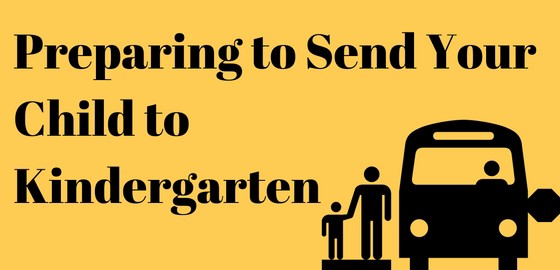September marks a significant milestone for my family, we are sending our first child off to kindergarten. This is definitely a time of mixed feelings at my house. Many of you are experiencing the same transition this fall, so I thought I would put together some tips to help all of us (children and the parents) adjust as successfully as possible. I can honestly say that I am using these same steps as much as possible to help my family prepare for the fall.
1. Be aware of, acknowledge and process your own feelings. This Mama’s feelings about the transition to Kindergarten include being anxious, sad and excited. Your feelings may be similar or different. As parents, we need to be aware of our own emotions so we can monitor ourselves and how we may be showing those emotions to our children. I am trying hard to process my own anxiety about the kindergarten process with my husband and friends so that my anxiety doesn’t inadvertently spill onto my child. When I share my emotions about this experience with my child, I want to do so in a mindful way and be clear on why I am doing so.
2. Be mindful to separate your feelings from your child’s feelings. Remember that your child’s feelings may not match your feelings. As parents we need to be careful not to project our own emotions onto our children.
3. Allow your child space to process and share their emotions. Accept and normalize whatever emotions your child shares. Allow your child the opportunity to experience their emotions, while also introducing coping strategies for any emotions that may becoming overwhelming. These previous posts may be of interest to you during this process: Thinking Outside of the Box: Creative Ways to Help Children Express Their Emotions (Part One and Part Two) and Effective Coping Strategies for Children and Teens
4. Take advantage of any opportunities to visit your child’s school before the start of the school year. This will help your child feel comfortable and have a better understanding of what to expect once school starts.
5. Talk to your child about the typical Kindergarten day, so he or she has a good idea of what to expect and feels less overwhelmed. Talk about things such as the length and structure of the day, the bus ride, lunch time, recess and/or anything else your child may be surprised by. Monitor your child’s response to the information being shared to determine how much to share. Some children benefit from more information and some children find too much information overwhelming.
6. Start working on sleep right now. The number one thing that I’ve heard from parents of Kindergartners, in and out of my therapy office, is about how exhausting children find the Kindergarten day. It is never too early to help your child get on a sleep schedule that will help them be most successful in school.
7. Don’t forget about the younger siblings. Younger siblings may also experience an adjustment as they watch older brother or sister go off to Kindergarten. Be mindful of your younger child’s emotions and allow them a space to process their emotions, too.
Best wishes to you and your family as you embark on this new journey!
Sarah
About Sarah
Sarah is a mother, a wife and a Licensed Marriage and Family Therapist who practices in Eagan, Minnesota.

My only child has graduated from high school. However, I found this information fantastic for younger mothers who are experiencing this for the first time. I have shared on my FB timeline for friends of young ones. I think any of the points you made can be tweaked a bit and apply to every child returning to school in the fall.
I remember those days, excitement and sadness all rolled in to one! Good luck in September. I found it was me more that the kids that needed support!
Julie, thank you so much for your comment. You are right that these tips can be easily tweaked for children of all ages and grades. Thank you for sharing that point.
Sarah, thank you for your comment. I think that many parents share the same experience of feeling that they needed more support than their child. That is why I made the first couple of tips focused on the parents. 🙂